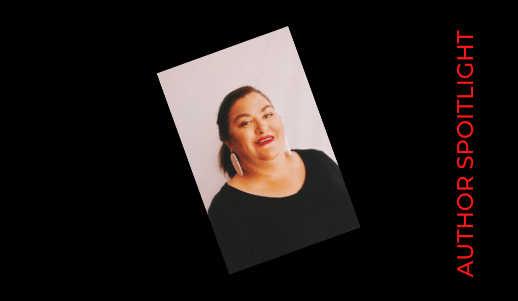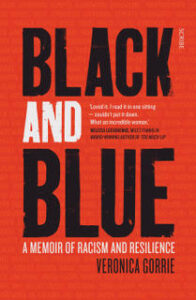Veronica Gorrie drew on her lived experience as a Gunai/Kurnai woman and former police officer for her book Black and Blue: A Memoir of Racism and Resilience (Scribe Publications). Through her sharp wit and engaging storytelling, she takes us on her journey as an Aboriginal person who joined the white, male-dominated Queensland police. Veronica shared her insights with Maggie Baron.
Hi Veronica, firstly congratulations on your book. I was deeply affected by your journey and most importantly your resilience. You share with the reader that you started this book to process memories after being diagnosed with post-traumatic stress disorder, anxiety, and depression.
How did this writing process assist you? And how did you ensure you were supported whilst revisiting these challenging times?
In all honesty, I don’t think that the writing of Black and Blue has assisted with my mental health, if anything, it has caused me to relapse especially with the PTSD. In saying that, anybody who is considering writing their own memoirs that involve parts of your life whereby trauma exists, do it. Everybody reacts differently and just because it hasn’t necessarily been a healing process for me doesn’t mean it won’t for them.
Whilst writing Black and Blue, I found it emotionally challenging at times and there are some parts of the book that I have never been able to revisit. I was supported by my husband through this journey and he is still providing that support. He was there every time I couldn’t write and had to take a step back whilst I cried and provided me with lots of cuddles and kisses and I am truly grateful to have him in my life.
Your family is clearly portrayed as particularly important people in your life, despite their own challenges with drugs, alcohol, and violence. How did they inform your decisions to join the police force?
My family plays a pivotal role in my life, not just my immediate family but extended family as well and as much as Black and Blue is my story, it is theirs as well, so much so, that when Scribe Publications paid me for the book deal, I shared it among my family. Whilst I was writing, I had to be mindful about what I shared and what I couldn’t, to protect them but everything I have written about them I have had their permission prior which is really important for me to have as I would never write about somebody, especially my family members without their permission.
Throughout my childhood, I have witnessed a lot of police brutality and excessive use of force by police toward not only my direct family but my community, the Aboriginal community, so when I applied to become a police officer, I had this idea that I could change the system and ensure that all Aboriginal people are treated with dignity no matter the circumstances of their encounter with police and let’s be honest, as an Aboriginal person, a black or brown person, encounters with police are highly likely because police all over racially profile.
Many writers of their personal stories talk about the need to wait until certain people have passed away before they could share their stories publicly. What considerations did you have about the potential to share personal matters with the reading public?
I felt the need to speak of their traumas within Black and Blue as well to give them a voice, to empower them and if me doing this empowers other victims or survivors of trauma to speak up then I’ll be happy. I don’t think we should wait until people have passed to speak about certain topics. There are a lot of subject matters that I speak about in Black and Black that are seen as taboo and stuff we should keep locked away and not share with anyone, but essentially, I have no filters and no subject is off-limits with me and this may be a bad trait or not, we’ll see.
My mother passed away almost four years ago in October and prior to her passing, I shared with her my manuscript. I did this because I knew that she was terminally ill and wouldn’t be alive at the time of publication and I wanted and needed her to know what I was going to be writing, especially about our relationship.
What advice would you offer to others thinking of writing a memoir, especially fellow First Nations people?
Just go for it. Everyone is a writer without even knowing it. You write shopping lists, you write on social media etc. The main thing is to not overthink the process. For example, don’t try to put your writing into chapters when you begin writing, just write. Aboriginal people, my people, are the oldest living story- tellers in the world. Our ancestors have been telling stories for thousands of years and right now, our voices are being heard and amplified so go for it and remember, everybody has a story to tell, we just need to listen long enough.
What are you currently working on?
I am currently working on a play with the Melbourne Theatre Company (Reading) which is called Nullung. Nullung in my language, Gunai/Kurnai language means my father’s mother and her story is an excerpt of Black and Blue and it will be the first time that my language will be heard on stage and hopefully this will become a full production or even become a film.
I am also writing a series of children’s books which I am really excited about but I can’t speak too much about this at the moment but I am always writing. I have also started a second novel which is a historical true account of my grandmother’s sister who was stolen at the same time as my grandmother but died two years later.
Click here for more info.
Click here to listen to Veronica on RN Conversations with Richard Fidler (52 minutes)

